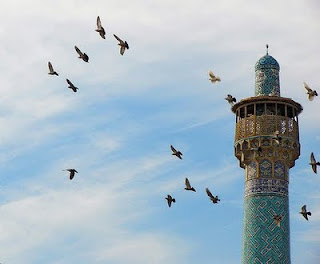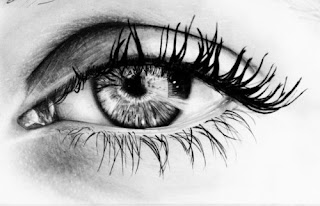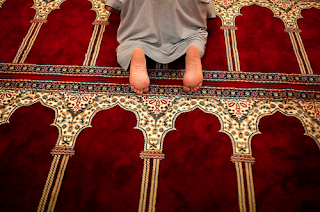
Tuesday, September 27, 2011
[20:2-3]
Friday, August 12, 2011
Sunday, August 7, 2011
Ya Muqallib al-Qulub
- Ya muqallib al-qulub, thabbit qalbi ‘ala dinik
O mover (or flip-flopper) of hearts, make my heart firm upon your religion
- Ya muqallib al-qulub, thabbit ‘ala’l-haqq
O mover of hearts, make my heart firm upon the truth
- Ya muqallib al-qulub, thabbit qalbi ‘ala ta’atik
O mover of hearts, make my heart firm upon your obedience
- Ya musarrif al-qulub, thabbit qalbi ‘ala ta’atik
O director of hearts, keep my heart in a state of obedience to you
- Ya muqallib al-qulub wa ‘l-ahwalhawwil halina ila ahsan ‘l-hal
O you, transformer of hearts and spiritual states make our states the loveliest of states
- Allahumma, ya muqallib al-qulub wa’l-absar, thabbit qalbi ‘ala dinik
O Allah, O controller of the hearts and eyes, let my heart hold fast onto your religion
- Allahuma Ya Musabbib al-Asbab, Ya Mufattih al-Abwab, Ya Muqallib al-qulubi wal-absar, Ya Dalil al-mutahayyirin, Ya Ghiyath al-mustaghathin, Ya Hayyu, Ya Qayyum, Ya Dhul-Jalali wa-l-Ikram! Wa ufawwidu amri il-Allah, inn-Allaha basirun bil-’ibad
O Allah, o causer of causes, o opener of doors, o transformer of hearts and eyes, o guide of the stupefied ones, o redresser of complainants, o living, o eternal, o majestic an venerable, (..)
Allah is the one who controls the hearts of people. Remember the hadith – in Sahih Muslim – that Allah doesn’t look at your bodies and appearances but rather at your hearts (and your acts). In the Qur’an it is said that only the ones with a clean heart (bi qalbin salim) will be accepted by Allah. Oh Allah clean our hearts and deeds from hypocrisy and make us better people.
Saturday, August 6, 2011
Ibn al-Qayyim
"Our enemies are not the Jews or Christians, but our enemy is our own ignorance.”
| — | Imam Ali Ibn Abi Talib (as) |
“Wisdom is the lost property of the believer; he takes it from wherever he finds.”
| — | Prophet Muhammad. (Narrated by at-Tirmidhi) |
Muadh Ibn Jabal (radiAllahu anhu)
Jaabir ibn ‘Abd-Allaah Rahimullah.
| — |
(Bukhari)
Tuesday, July 26, 2011
humble
bn al-Qayyim ramatullah alayh said,
Humility comes from knowing about Allah and His names and attributes, and His greatness, venerating Him, loving Him and being in awe of Him; and also from knowing about oneself and one’s faults, and weaknesses. From that may develop the attitude of humility, which means feeling helpless before Allah, and being humble and compassionate towards His slaves, so that the person does not feel superior towards anyone, or think that he has any rights over anyone else; rather he thinks that others are better than him, and that their rights come before his. This is a characteristic that Allah gives to those whom He loves, honours and draws close to Him.
Mohd. Akmal Nazir
: Shaykh Faizee Shah Noori
Creations can never become Allah. Allah can never become a creation. But, no creation can subsist without Allah being with it.
Wednesday, July 20, 2011
nafs and dunya
“Know that the life of this world is but amusement and diversion and adornment and boasting to one another and competition in increase of wealth and children - like the example of a rain whose [resulting] plant growth pleases the tillers; then it dries and you see it turned yellow; then it becomes [scattered] debris. And in the Hereafter is severe punishment and forgiveness from Allah and approval. And what is the worldly life except the enjoyment of delusion.”
(Surah Al-Hadid, ayah 20)
Prophet Muhammad (Peace be upon him)
Ali ibn Abu Talib (radiAllahu anhu)
Tuesday, July 19, 2011
Reported by an-Nawwas ibn Sam’an and recorded by Imam Muslim.
“Righteousness is good morality, and wrongdoing is that which wavers in your soul and which you dislike people finding out about.”
[Muslim]
“The world is a prison for a believer and Paradise for a non-believer.”
ibn majah
alhassan albasri
“The intelligent person’s tongue is behind his heart: when he wants to speak, he first thinks. If [his words] will be in his favour, he says them, and if they will be against him, he does not speak. And the ignorant person’s heart is behind his tongue: when he merely thinks of saying something, he says it, whether it is for or against him.”
Monday, July 18, 2011
[28:55]
watch
Prophet Muhammad (SAWS) said:
-Reported by Abu Malik al-Harith ibn Asim al-Ash’ari and recorded by Imam Muslim. (#23)
(al-Nasaa’i, 2247;)
“Whoever fasts one day for the sake of Allaah, Allaah will keep his face seventy years’ distance from Hell,”
Saturday, July 16, 2011
108. Al Kawthar (Abundance)
(3:193)
Hadhrat Ma’roof Karkhi
107. Al Ma’un (Basic Necessities)

In the name of Allah, the Most Merciful,
the Ever-Merciful Have you seen the one who denies the Recompense? For that is the one who drives away the orphan And does not encourage the feeding of the poor. So woe to those who pray [But] who are heedless of their prayer - Those who make show [of their deeds] And withhold basic necessities.
Qur’aan 9:78
Did they not know that Allah knows their secrets and their private conversations and that Allah is the Knower of the unseen?
Abu Darda radiAllahu anho
| — |
[Bukhari, Al-Adab Al-Mufrad, #371]
(Ibn Majah, 3989)
(Abu Dawud, 4941; Tirmidhi, 1924)
(Ibn Abbas: Baihaqi)
Thursday, July 14, 2011
Abstaining from sins is a Mercy from Allah
with scant exception (4:83).”
(Abu Dawud, 4941; Tirmidhi, 1924)
“The merciful people will be shown mercy by the All Merciful; be merciful to those on earth and the One in heaven will be merciful to you”
(Ibn Majah, 3989)
“Allah loves the righteous, pious, inconspicuous people. When they are absent they are not missed. When they are present they are not called out or noticed. Their hearts are lamps of guidance. They emerge from every place of darkness.”
[Holy Quran, 25:74]
Mahatma Gandhi
Uwais al-Qarni (RA)
[Al-Bukhaari and Muslim]
“A man is a shepherd of the people of his house, and he shall be asked concerning his flock; and a woman is a shepherd of the house of her husband and over their children, and she shall be asked concerning them.”
Wednesday, July 13, 2011
valuable lesson
One day, a rich father took his son on a trip. He wanted to show him how poor someone can be. They spent time on the farm of a poor family.
On the way home, father asked, Did you see how poor they are? What did you learn? The son replied, “We have a pool, they have rivers. We have lanterns at night, they have stars. We buy food, they grow theirs. We have walls to protect us, they have friends. We have encyclopaedias, they have the Quran.”
Then he added: “Thanks Dad for showing me how poor we are.”
LESSON: It’s not about money that makes us rich, it’s about simplicity & having ALLAH in our lives.
THE ATTITUDE OF A TRUE MUSLIMAH TOWARDS HER LORD
- She has deep faith in Allah swt and willingly submits to His will and decree
- She worships Him sincerely, obeying all His commands and heeding all His prohibitions
- She understands what it means to be a true servant of Allah
- She constantly strives to support His religion and to make His word supreme on earth
- She is proud of her Muslim identity, which draws its strength from her understanding of the purpose of human existence in this life, as defined by Allah swt in the Quran:
“I have only created jinns and men, that they should worship Me Alone.” [51:56]
women
The Origin of Idolatry
And said, ‘Never leave your gods and never leave Wadd or Suwa’ or Yaghuth and Ya’uq and Nasr.
-71:23
Originally these were the names of good people who had lived among the people. After their deaths, statues of them were erected to keep their memories alive. After sometime, however, people began to worship these statues. Later generations did not even know why they had been erected; they only knew their parents had prayed to them. That is how idol worshipping developed. Since they had no understanding of Allah the Almighty, Who would punish them for their evil deeds, they became cruel and immoral.
Ibn Abbas explained: “Following upon the death of those righteous men, Satan inspired their people to erect statues in the places where they used to sit. They did this, but these statues were not worshiped until the coming generations deviated from the right way of life. Then they worshipped them as their idols.”
In his version, Ibn Jarir narrated: “There were righteous people who lived in the period between Adam and Nuh alayissalam and who had followers who held them as models. After their death, their friends who used to emulate them said: ‘If we make statues of them, it will be more pleasing to us in our worship and will remind us of them.’ So they built statues of them, and , after they had died and others came after them, Iblis crept into their minds saying: ‘Your forefathers used to worship them, and through that worship they got rain.’ So they worshipped them.”
Ibn Abi Hatim related this story: “Waddan was a righteous man who was loved by his people. When he died, they withdrew to his grave in the land of Babylonia and were overwhelmed by sadness. When Iblis saw their sorrow caused by his death, he disguised himself in the form of a man saying: ‘I have seen your sorrow because of this man’s death; can I make a statue like him which could be put in your meeting place to make you remember him?’ They said: ‘Yes.’
So he made the statue like him. They put it in their meeting place in order to be reminded of him. When Iblis saw their interest in remembering him, he said: ‘Can I build a statue of him in the home of each one of you so that he would be in everyone’s house and you could remember him?’
They agreed. Their children learned about and saw what they were doing. They also learned about their remembrance of him instead of Allâh. So the first to be worshipped instead of Allâh was Waddan, the idol which they named thus.”
The essence of this point is that every idol from those earlier mentioned was worshipped by a certain group of people. It was mentioned that people made picture sand as the ages passed they made these pictures into statues, so that their forms could be fully recognized; afterwards they were worshipped instead of Allah.
It was narrated that Umm Salmah and Umm Habibah told Allâh’s Prophet Muhammad sallallaahu ‘alayhi wa sallam about the church called “Maria” which they had seen in the land of Abyssinia. They described its beauty and the pictures therein. He said:
“Those are the people who build places of worship on the grave of every dead man who was righteous and then make therein those pictures. Those are the worst of creation unto Allâh.”
(Saheeh al-Bukhaaree).
ya Allah
All praises are for you Allah, how I hope that you are there.
For sinful though I know I am, your displeasure I can not bear.Never, till this moment, did I realize how much I’ve strayed. Never, till now, was I more conscious of all those times when I should have prayed.
For sins are like heavy baggage, that one carries through Life, the airport. Why didn’t I realize sooner, that Earth is but a place of sport?
Ya Allah! Forgive me. Save me from the fire of Hell. Forgive me as you did my parents, from Jan’ah though they fell.
Ya Allah! Protect me. From myself for my soul is weak.
Let me not falter ever, for Jan’ah is the abode I seek.Ya, Allah! Please help me. For I don’t understand and thus, I fear.
What happened to all those moments when I never doubted that you were near?My actions once were guided, by my faith which, once, was strong. Ya Allah! please guide me . What happened, what went wrong?
Each footstep that I used to take, I took with you ever near my side. The Quran was my faithful companion, Rasoolallah my beloved guide.
How I yearn for those bygone days Allah, for I know that the day comes near when we’ll each receive our just rewards, and Truth will stand sparkling clear.
Life is like a spider’s web, Allah. We get caught in its tricky snare
So thoroughly are we disillusioned, time for salat we can not spare.I sit here and I wonder, Ya Allah! Why did I fall so low ?
What happened to my faith Allah? Where did my Iman go?In this earthly life of ours, so often does sin seem right. Falsehood seems to be the truth, as if days are confused with night.
Man is an imperfect creature. And thus, Man shall always wrong. For the road to Jan’ah is rocky, and the journey seems awfully long.
Ya Allah ! Our creator, we are all just peices of clay. Please help us with our steps in life, and let us not lose our way.
All praises are for you Allah, I know that you are near. I know that you have read my heart, and my words I know you hear.
-Anonymous


























